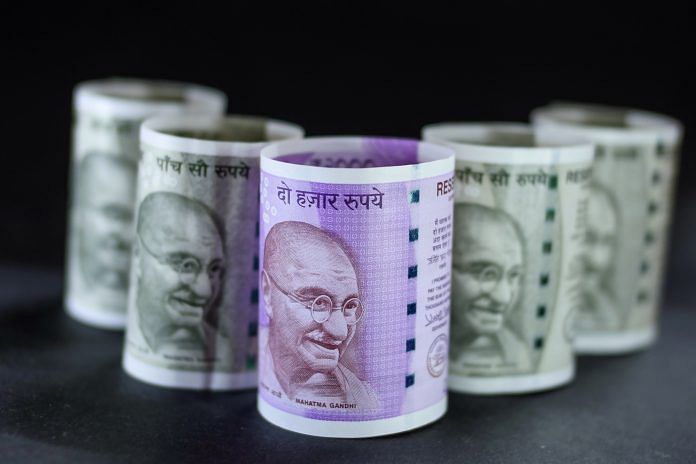New Delhi: The Central Statistics office (CSO) will Friday release India’s 2019-20 gross domestic product (GDP) data, along with the fourth quarter GDP data. The expectation is the official government forecast of a 5 per cent growth is likely to be revised downwards.
But economists, statisticians and policymakers are grappling with a bigger challenge on data — the projections for growth of the Indian economy in 2020-21 that have seen a swing of more than 10 per cent over the last three months, moving from a positive rate into the negative territory.
Before March, financial institutions and rating agencies were forecasting that the economy will grow at 5-6 per cent in 2020-21. The arrival of Covid-19 and the imposition of the subsequent three-week lockdown from 25 March pushed them to scale down the projections to a marginal growth of 2-3 per cent.
But with the lockdown extending beyond two months as India looks to slow the infection spread, projections now say the Indian economy will contract by 5-7 per cent in 2020-21.
Such wild swings, the uncertainty triggered by the unprecedented pandemic, delays in data releases as well as the difficulty expected in collecting data going forward is expected to make data-based policy-making difficult. So much so that some experts are questioning the relevance of data during such uncertainties.
Also read: Fiscal slippage imminent as govt to borrow additional Rs 4.2 lakh crore in 2020-21
This recession unlike any before
Economists and statisticians say they are dealing with an unknown variable.
In a note earlier this week, Crisil ratings pointed out the Indian republic has seen a recession only thrice in its history – fiscal years 1958, 1966 and 1980. The recession this time will be substantially different as it won’t be on account of a monsoon shock to agriculture, it said.
“The reason was the same each time (previously) — a monsoon shock that hit agriculture, then a sizable part of the economy. The recession staring at us today is different,” the note said.
“For one, agriculture could soften the blow this time by growing near its trend rate, assuming a normal monsoon. Two, the pandemic-induced lockdowns have affected most non-agriculture sectors. And three, the global disruption has upended whatever opportunities India had on the exports front,” it said.
For the first time ever, the Monetary Policy Committee (MPC), which has the Reserve Bank of India governor on the panel, also desisted from providing a growth projection for the fiscal citing huge uncertainties.
“For the year as a whole, there is still heightened uncertainty about the duration of the pandemic and how long social distancing measures are likely to remain in place and consequently, downside risks to domestic growth remain significant,” the MPC said in its most recent statement last week.
However, RBI Governor Shaktikanta Das acknowledged that the Indian economy will shrink this fiscal. He said the MPC judged the risks to be gravest in the growth outlook and pointed out downside risks are significant, dependent upon the containment of the pandemic and quick phasing out of social distancing and lockdowns.
Also read: Modi govt estimates 15% of Rs 3 lakh crore MSME loans could turn NPA. Banks fear worse
Data credibility was under cloud, will be questionable again
The Covid-19 pandemic comes at a time when the credibility of India’s official statistics has been under the scanner, with the Narendra Modi government choosing to delay the release of jobs data last year and then completely scrapping the consumption survey.
Further, former chief economic advisor Arvind Subramanian’s working paper said India’s GDP growth may have been overstated for the past few years, leading to concerns over the growth numbers.
Pronab Sen, the chairman of the government appointed committee on economic statistics, said normal processes of data collection have been badly affected and this will impact GDP data beginning the first quarter of 2020-21. But he pointed out that it will be important for CSO to clarify upfront that approximations have been used.
“Approximations will have to be made. Using past data, one will have to work out correlations between the data that you have managed to collect and the data that you don’t have. It won’t be hard data but synthetic estimates,” he said. “The CSO will have to be clear that these are approximations based on past patterns and not current hard data.”
Sen added that even prior to the Covid-19 pandemic, confidence in Indian data was “shattered” due to a series of data suppression. “There will be approximations used this year and the reliability of the data will be questionable,” he added.
Also read: Finance ministry to continue spending curbs in Q2, but infra ministries could get priority



